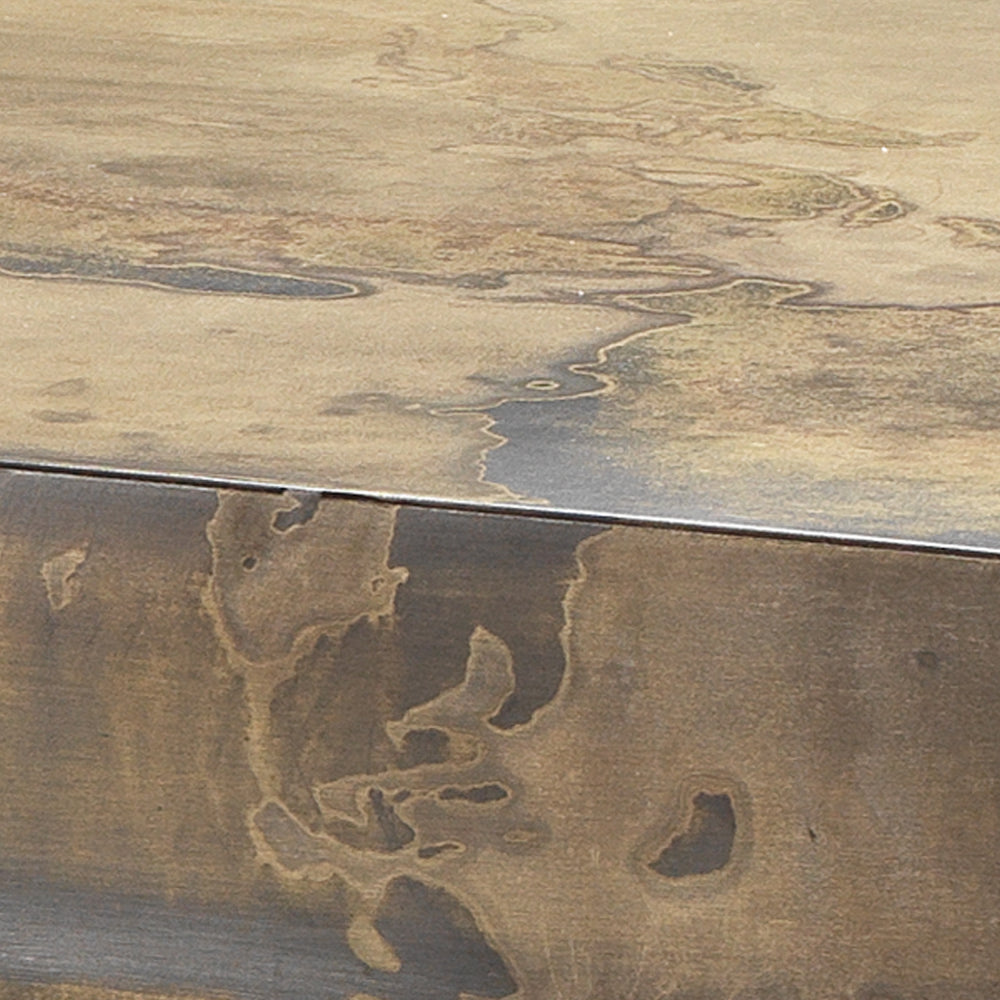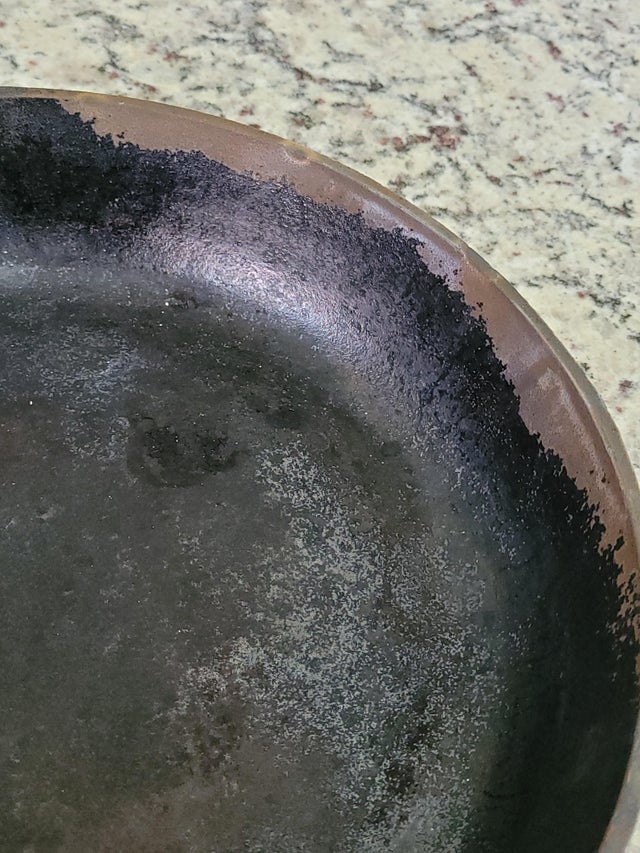Acids and metals are two substances that have been known to interact with each other for centuries. Metals are highly reactive and tend to lose electrons easily, while acids are compounds that donate hydrogen ions (H+) in aqueous solutions. The question is, do acids corrode metals? The short answer is yes, they do.
When a metal comes into contact with an acid, the metal reacts with the acid to produce hydrogen gas and a metal salt. The hydrogen gas bubbles out of the solution, and the metal salt remains in the solution. The reaction between the metal and acid is an exmple of an oxidation-reduction reaction. In this type of reaction, the metal loses electrons and becomes oxidized, while the acid gains electrons and becomes reduced.
The rate of corrosion of metals in acids depends on several factors. First, the type of acid used affects the rate of corrosion. Strong acids, such as hydrochloric acid (HCl) and sulfuric acid (H2SO4), are highly corrosive and can quickly dissolve metals. Weak acids, such as acetic acid (CH3COOH), are less corrosive and do not react with some metals.
The concentration of acid also affects the rate of corrosion. The higher the concentration of acid, the faster the rate of corrosion. Temperature also affects the rate of corrosion. The higher the temperature, the faster the rate of corrosion. This is because higher temperatures increase the rate of chemical reactions.
Another factor that affects the rate of corrosion is the nature of the metal. Different metals have different reactivities and are more or less resistant to corrosion in acids. For example, gold, platinum, and silver are highly resistant to corrosion in most acids, while iron and steel are highly reactive and corrode easily.
In summary, acids do corrode metals. The rate of corrosion depends on several factors, including the type and concentration of acid, temperature, and the nature of the metal. To prevent corrosion, it is important to choose the right metal for the job and to use protective coatings or inhibitors to slow down the rate of corrosion.
The Effects of Acid on Metal
When metals come in contact with acid, a chemical reaction occurs. The acid donates hydrogen ions (H+) to the metal, causing it to lose electrons and oxidize. This results in the formation of metal salts and the release of hydrogen gas. The rate of the reaction depends on the type of acid and metal involved, as well as the concentration and temperature of the acid. Some metals, such as gold and platinum, do not react with most acids, whle others, such as magnesium and zinc, react readily with even dilute acids. The reaction between acid and metal is an important process in many industrial applications, such as metal plating, battery production, and metal etching.

The Effect of Acids on Corrosion of Metals
Yes, acids can speed up the corrosion of metals. When an acid comes into contact with a metal, it reacts with the metal’s surface and can cause the metal to corrode more quickly. This is because the acid increases the conductivity of moisture around the metal, which allows for faster corrosion to occur. Additionally, the acid can react with the metal and form a salt, which can also accelerate corrosion. Therefore, it is important to take precautions when using acids around metal objects, especially if they are not properly protected or coated.
The Effect of Acid on Metal
The acid that is known to destroy metal is hydrochloric acid. This acid is highly corrosive and can dissolve various metals like iron, copper, and zinc. Hydrochloric acid is a strong acid that consists of hydrogen chloride and water, and it has a pH level of 1, making it highly acidic. When the acid cmes into contact with metal, it reacts with the metal to form metal chloride and hydrogen gas. The metal chloride dissolves in the acid, which eats away at the metal, causing it to corrode and eventually disintegrate. Due to its destructive nature, hydrochloric acid is commonly used in industrial cleaning processes and in the school chemistry lab to demonstrate the reactivity of metals.
The Effects of Acid on Metal
Sulfuric acid is a type of acid that is known to destroy or dissolve most metals due to its highly reactive nature. When in contact with metals, sulfuric acid oxidizes the metal’s surface, causing it to corrode and dissolve. This is bcause sulfuric acid is a strong acid that has a high affinity for electrons, making it capable of breaking down the molecular structure of metals. Moreover, the reaction between sulfuric acid and metals generates hydrogen gas, which further accelerates the corrosion process. Therefore, it is important to handle sulfuric acid with caution and follow proper safety protocols to avoid any accidents or damage to equipment.
The Effects of Acidity on Corrosion
Yes, acidity does increase corrosion. When water is acidic, it has a low pH value, whih means it has a high concentration of hydrogen ions. These hydrogen ions can react with metal ions in the presence of oxygen to form metal oxide or metal hydroxide, which is the process of corrosion. This reaction can occur more quickly in acidic solutions than in neutral or basic solutions, making the metal more vulnerable to corrosion. Additionally, dissolved solids in water are typically present as ions, which can increase the electrical conductivity of the water and make the electrolyte more effective. As a result, these ions can also increase the rate of corrosion. Therefore, it’s important to monitor the pH of water that comes into contact with metals to prevent corrosion.
The Corrosive Effects of Vinegar on Metal
Yes, vinegar can be corrosive to metal, especially if it is not diluted or if it is left in contact with the metal for an extended period of time. Vinegar is an acidic liquid, and it can react with certain metals, such as aluminum, copper, and brass, causing a chemical reaction that can lead to corrosion, discoloration, or pitting. Stainless steel is generally resistant to corrosion from vinegar, but it can still be affected if the vinegar is not properly diluted or if it is left on the surface for too long. Therefore, it’s important to be careful when using vinegar to clean metal surfaces and to always dilute it with water bfore use.

The Effects of Acidity on Corrosion
Yes, acidity does affect corrosion. The corrosion process is influenced by the pH level of the environment in which it occurs. Generally, the corrosion rate tends to decrease as the pH level increases. This means that the corrosion rate is inversely proportional to the solution’s acid concentration. In othr words, the higher the concentration of acid in the solution, the higher the corrosion rate will be. This is because acids can provide hydrogen ions (H+) that can react with the metal surface, leading to the formation of metal ions and the release of electrons. The higher the concentration of acid in the solution, the more hydrogen ions are available to react with the metal, leading to a higher corrosion rate. Therefore, it is important to control the pH level of the environment in order to minimize the corrosion rate and extend the lifespan of the metal.
Conclusion
In conclusion, acids do corrode metals by reacting with them to form metal salts and releasing hydrogen gas. The extent of corrosion depends on various factors such as the type and concentration of acid, the type of metal, and the presence of other substances that may affect the conductivity of moisture around the metal. Therefore, it is important to handle acids and metals with care to avoid any unwanted reactions and to ensure thir longevity. Understanding the corrosive properties of acids on metals can aid in preventing and mitigating the effects of corrosion, thus increasing the durability and safety of various structures and equipment.
